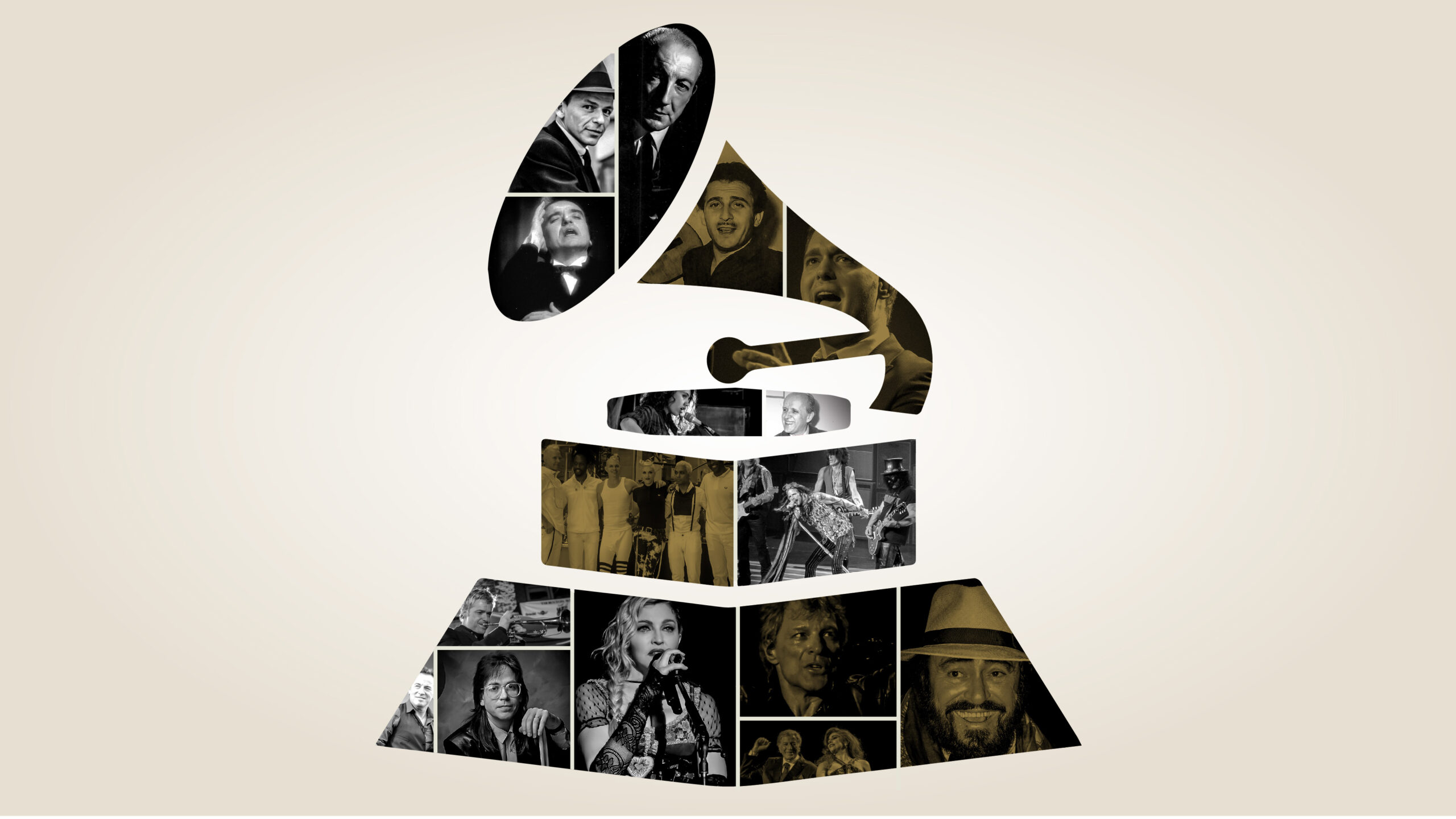With the 65th Annual Grammy Awards taking place this evening, America Domani studied the Italian representation over the history of the awards ceremony. What we found was very interesting. An Italian has taken home a Grammy at each of the previous 64 editions of the world’s most famous music awards. For this analysis, the qualification of “Italian” simply means an artist who has partial or full Italian heritage.
In several years, there were multiple Italians who took home a Grammy. For the analysis below, we listed one winner per year along with the category in which they won. So, read on...and don't forget to test your knowledge afterwards with our Italian Grammy Winners quiz!
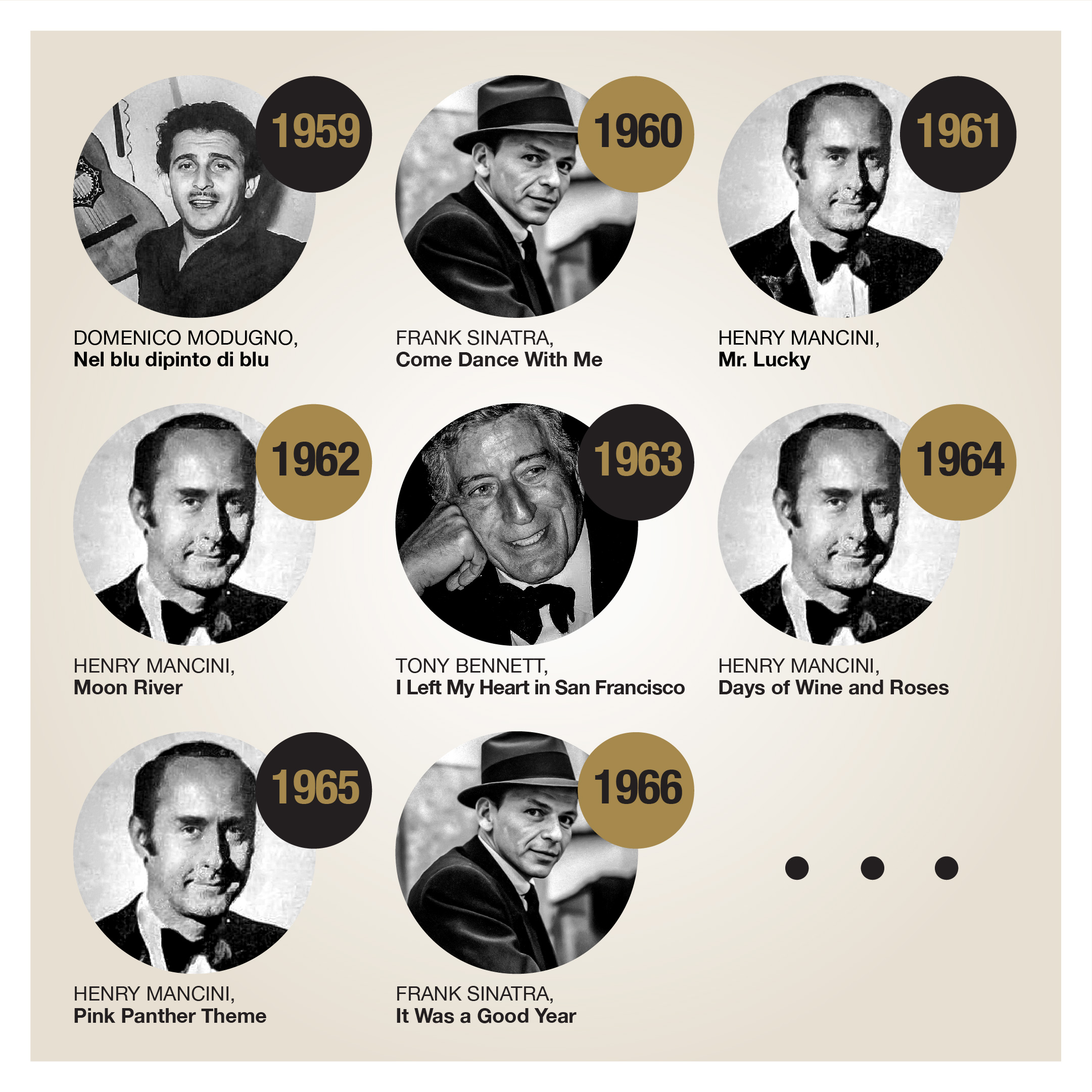
Domenico Modugno was the first Italian to take home a Grammy in the first edition of the awards ceremony in 1959. Modugno’s iconic hit “Nel Blu Dipinto di Blu” earned him the Grammy Award for Record of the Year.
Did You Know?
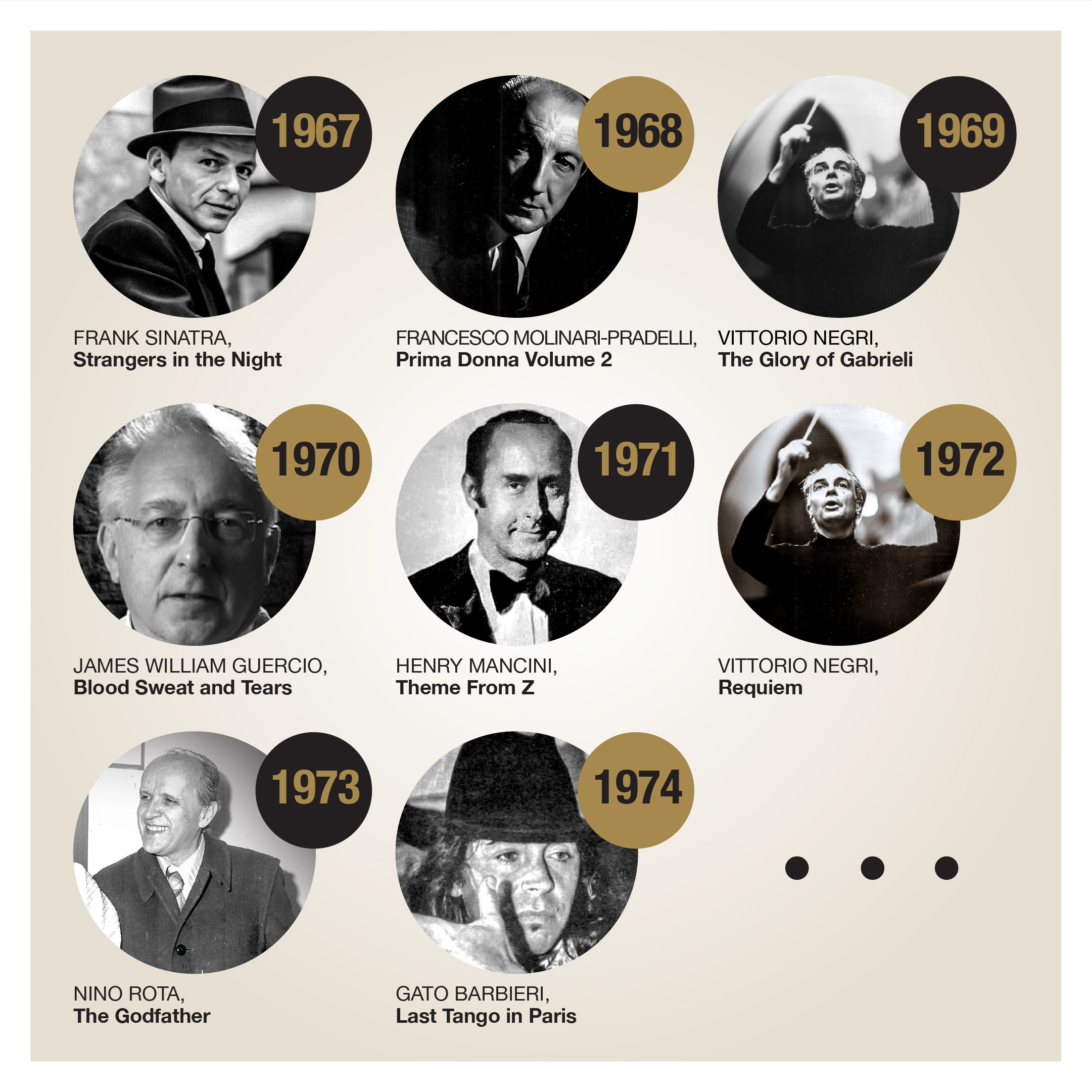
Did You Know?
Frank Sinatra and Henry Mancini solidified themselves as Italian music legends in this period. By the early 1970s, both Sinatra and Mancini had taken home Grammys in an astonishing eight of the first 13 editions of the awards.
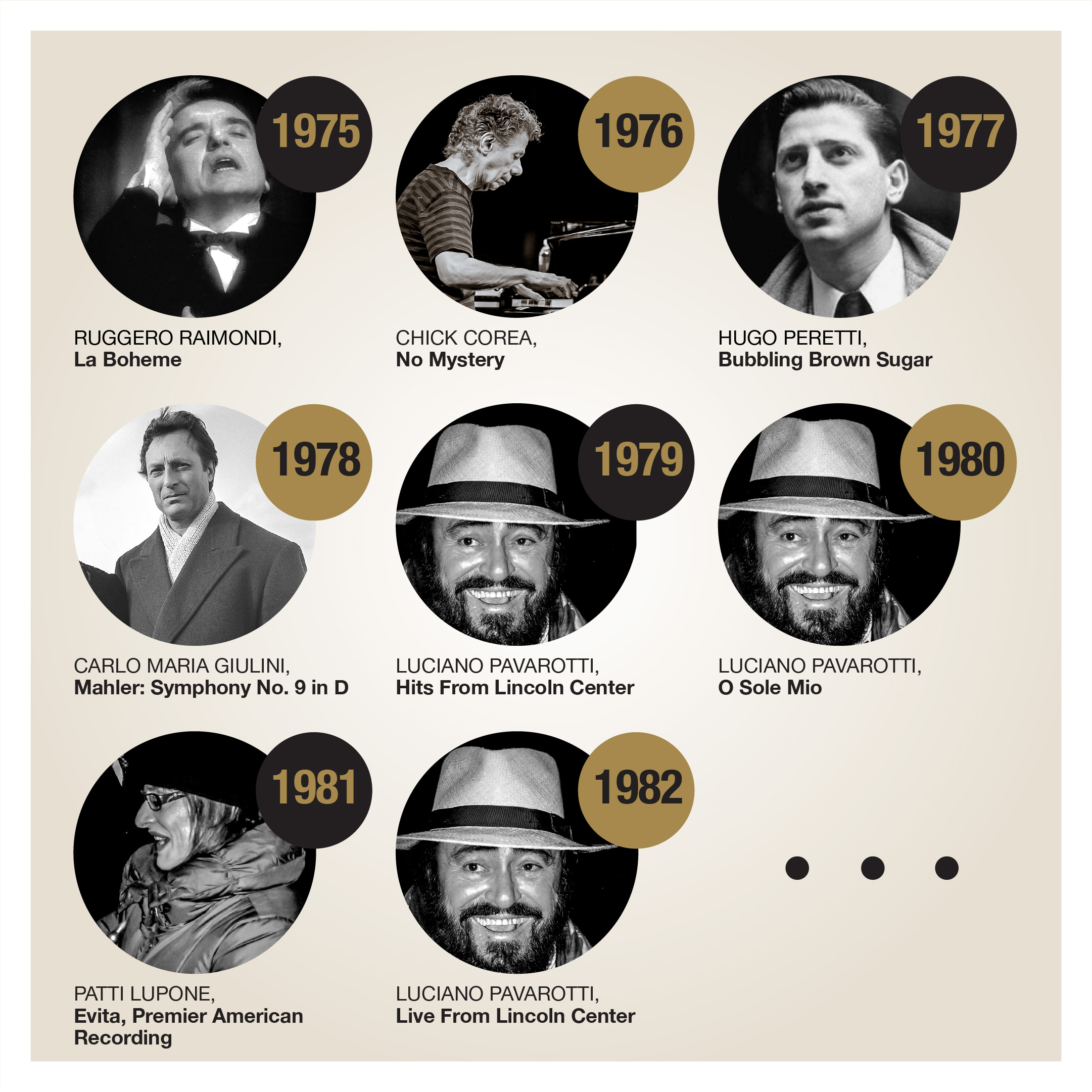
The world’s love affair with legendary Italian tenor Luciano Pavarotti began in the late 1970s, as the Modena-born opera sensation took home his first Grammy Award in 1979. Pavarotti would win a Grammy the following year, as well, for his performance of “O Sole Mio”.
Did You Know?
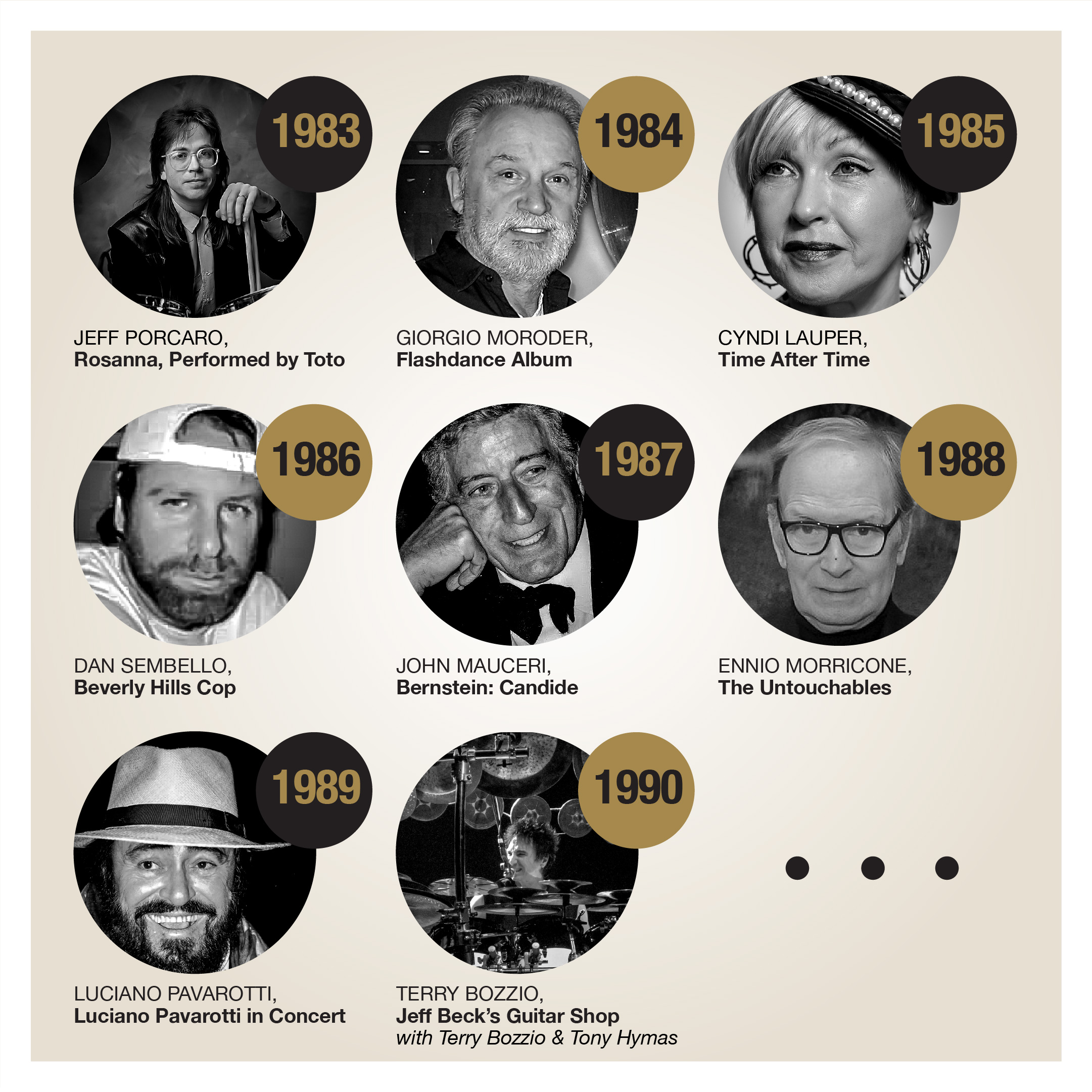
Did You Know?
The world was introduced to a young Cyndi Lauper in 1985 when she captured a Grammy for Best New Artist following the release of her album Time After Time. Born in Brooklyn, Lauper’s mother was Italian and traced her heritage back to Sicily.
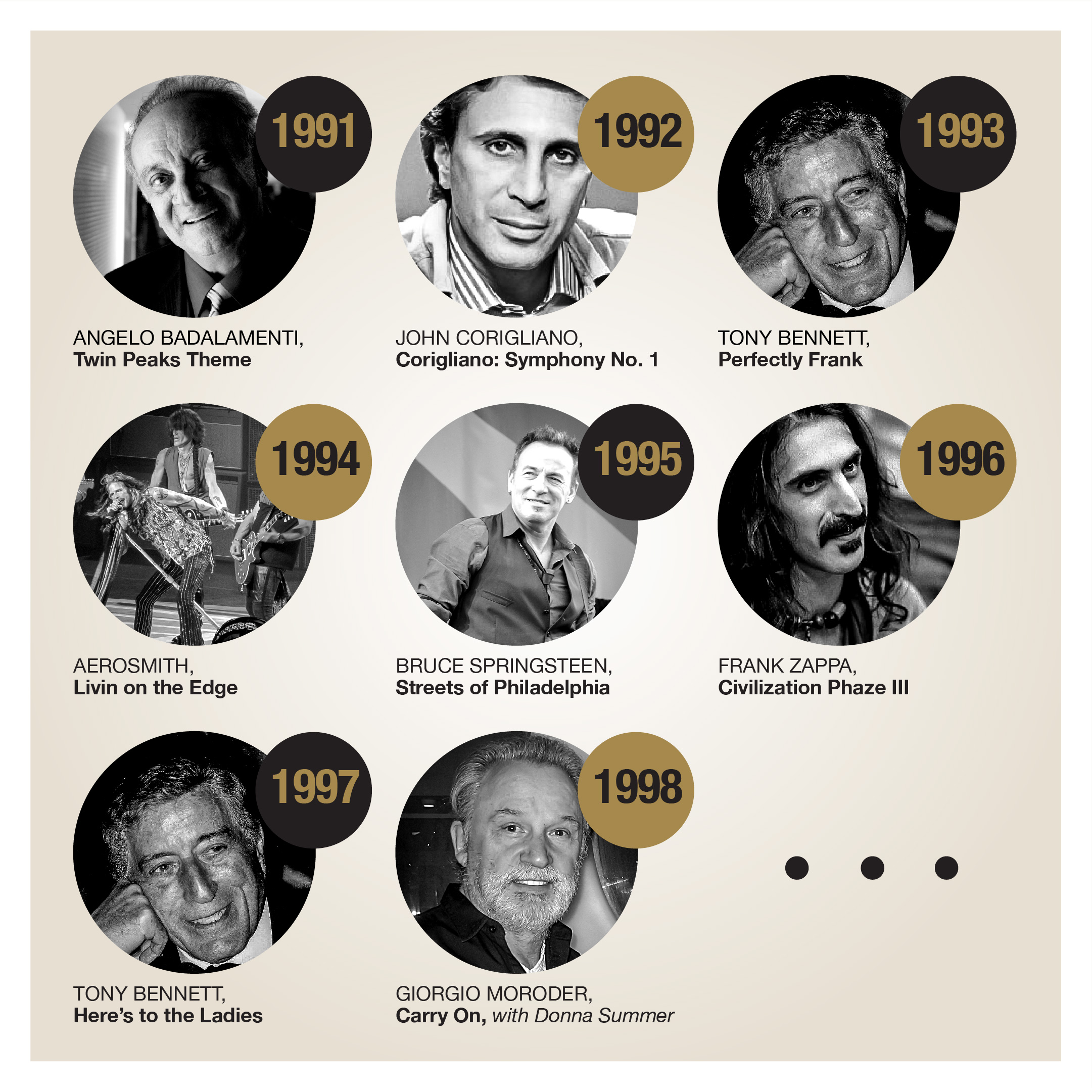
Several “unknown” Italians captured Grammys in the years that followed. American pop icons of Italian descent rose to mainstream fame in this era, including Bruce Springsteen, Frank Zappa, and Steven Tyler of Aerosmith, all of whom have Italian heritage.
Did You Know?
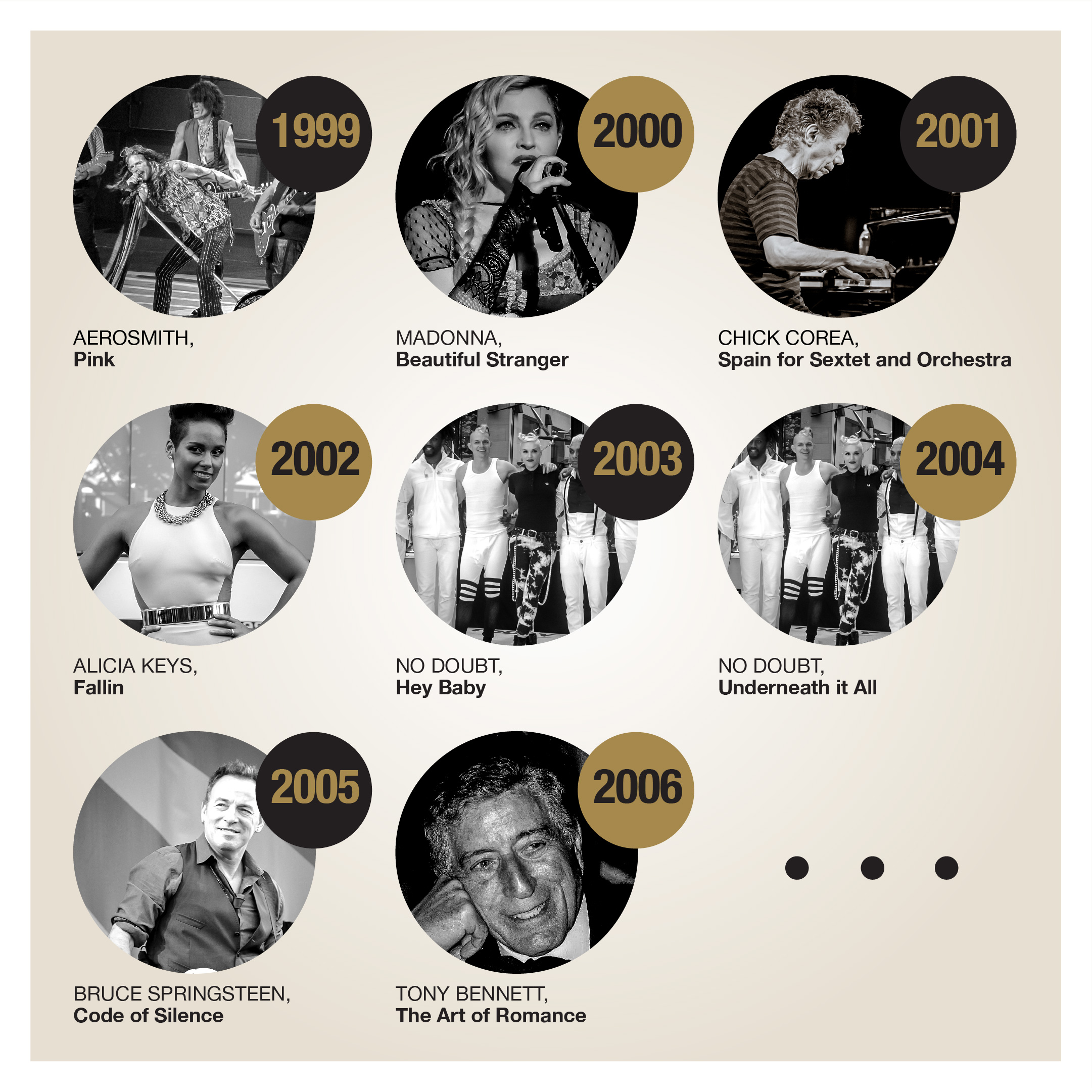
Did You Know?
Pop stars of Italian heritage continued to dominate the charts well into the early 2000s, as Aerosmith, Madonna, No Doubt, and Alicia Keys all took home Grammys in this period. Madonna traces her roots back to Abruzzo, while No Doubt’s Gwen Stefani and Alicia Keys both have Italian heritage, as well.
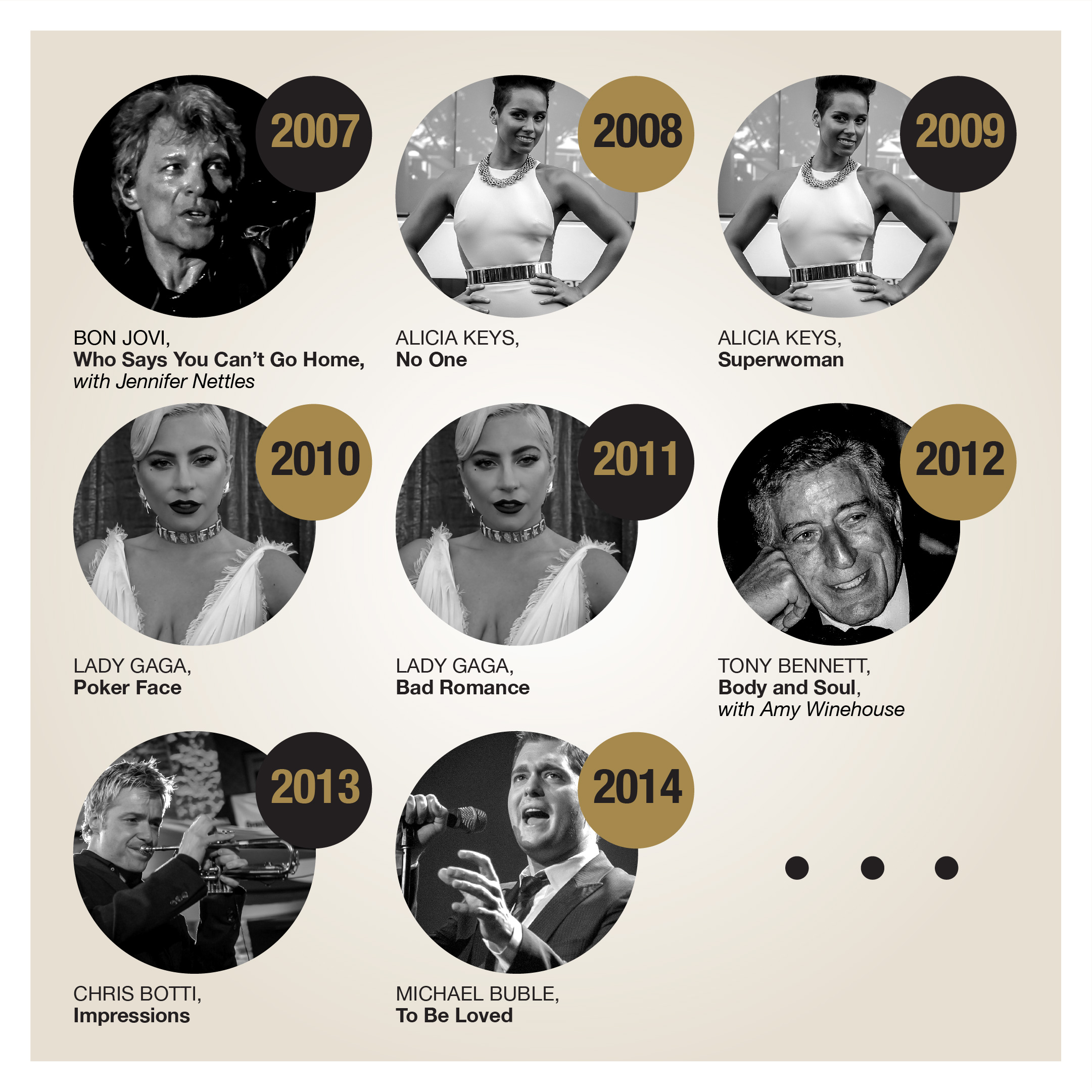
The ensuing years became the Gaga Era, as the world was introduced to Stefani Joanne Angelina Germanotta for the first time. Lady Gaga won multiple Grammys in this period, including Best Dance Recording for her hit single “Poker Face”.
Did You Know?
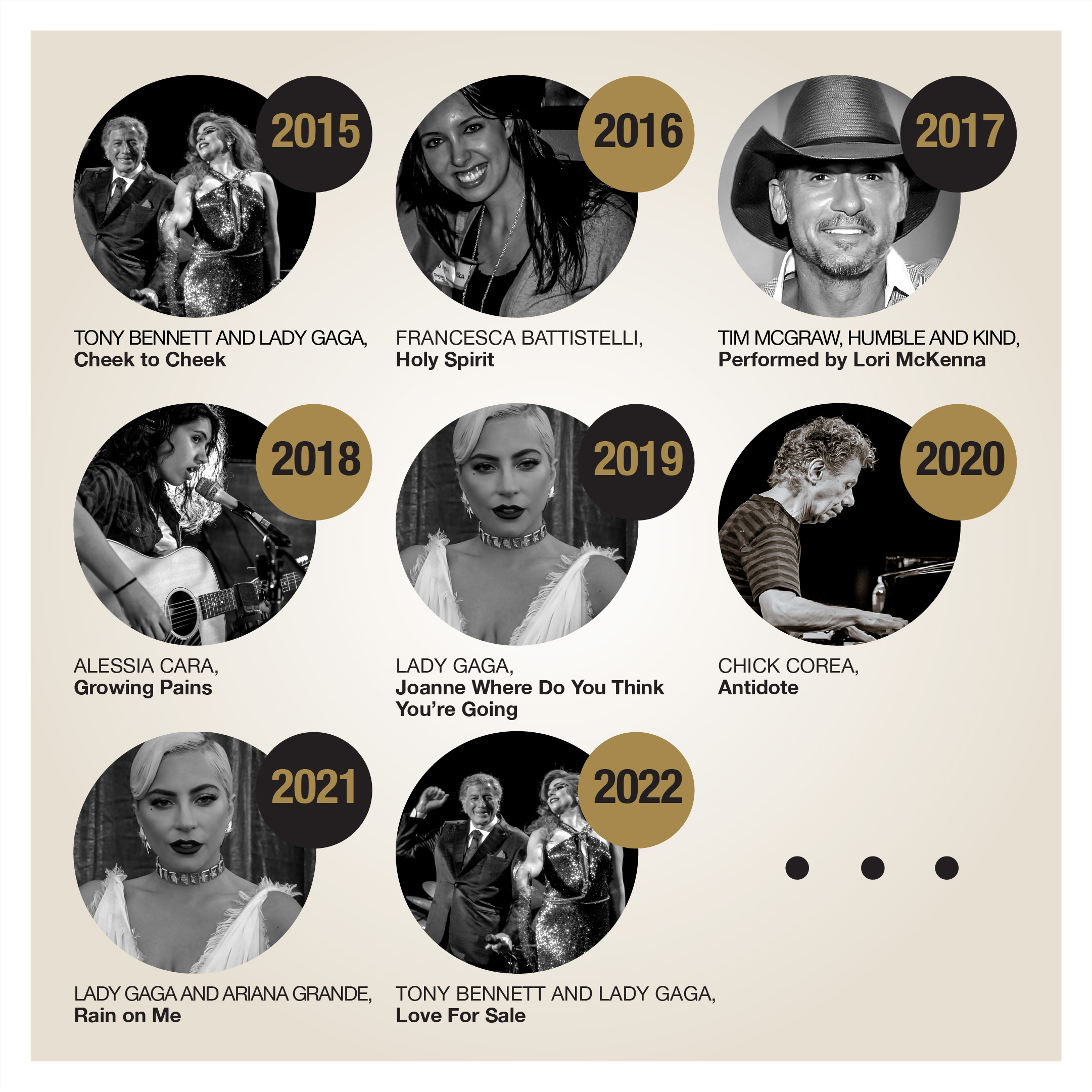
Did You Know?
Lady Gaga and Tony Bennett got a standing ovation from music fans across the world thanks to their moving “Cheek to Cheek” duet. Tim McGraw also took home a Grammy in this period for writing “Humble And Kind”, which would win Best Country Song by Lori McKenna. McGraw is of Italian and Irish descent on his mother’s side.
Think You Know Your Italian Grammy Winners?


